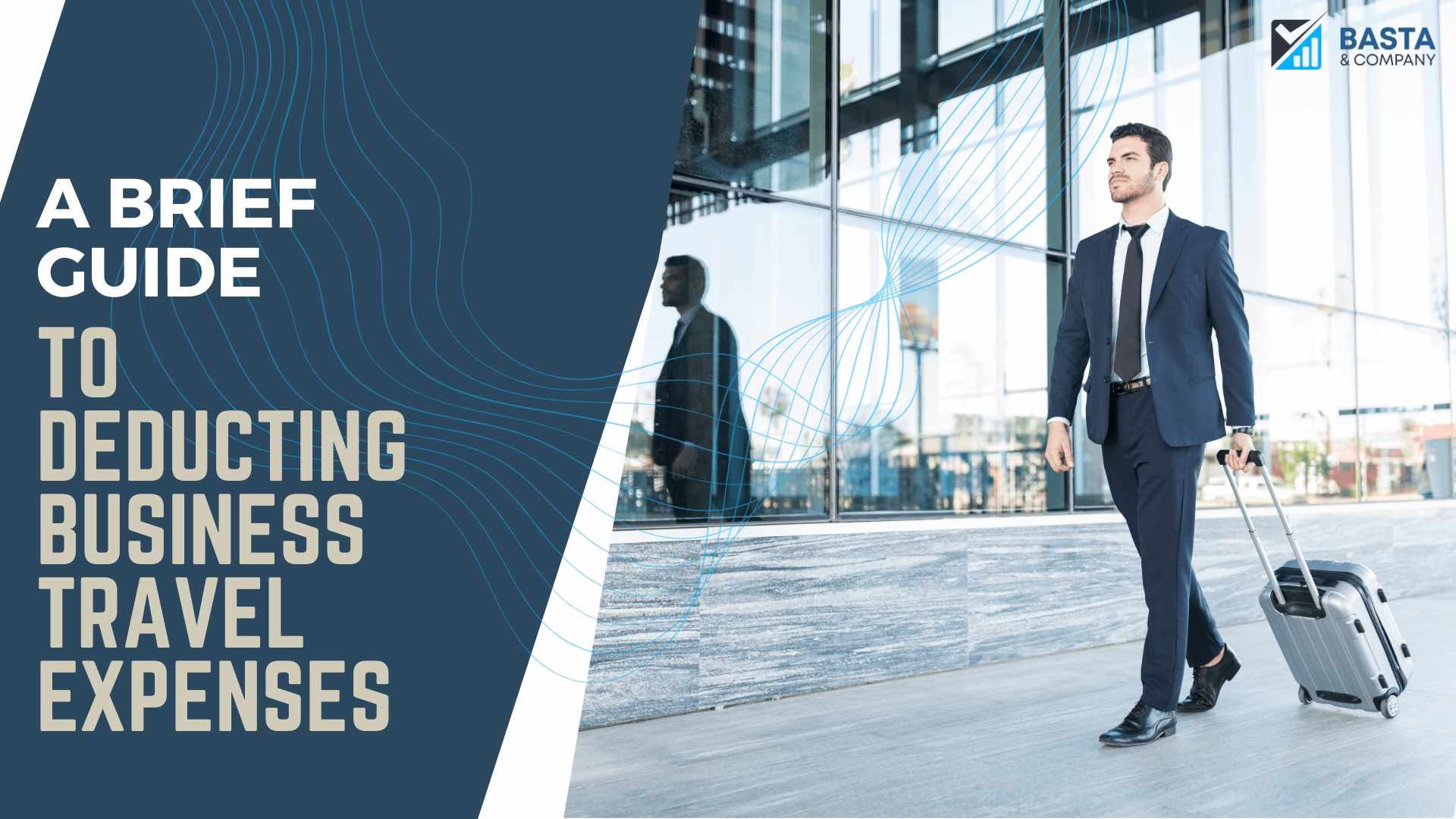
A Brief Guide to Deducting Business Travel Expenses
Webmaster • January 6th, 2025
It’s true that learning how to deduct business travel expenses is likely to save you a significant amount of money, but it’s essential that you follow the IRS guidelines carefully. Business travel deductions aren’t just about logging receipts; they require proper planning and clear intent. Let’s go through the rules, step by step, so you can make the most of these deductions while staying within the lines.
Not every trip that one takes qualifies as a business expense, and you should be aware that the IRS has specific criteria to determine eligibility.
Basically, the city or area where your business is based would be your ‘tax home’. For travel to count as a business expense, you need to leave this area for longer than a regular workday. This means attending a meeting in the next town over might not qualify unless it requires an overnight stay.
For instance, if your business is based in Chicago, and you go to New York for a three-day conference, that would count. If, however, you are within your city limits and have to run errands or go for a short event, it doesn’t count.
The IRS considers certain travel as ‘business trips’ based on how you spend your time. To qualify, the majority of your trip should be devoted to business activities.
Let’s say you’re traveling for six days. If four days are spent in meetings or attending work-related events, and two days are for personal leisure, the trip qualifies as a business trip. If the reverse is true—basically if you go on short vacation and just do a little business —it would not qualify.
It’s worth noting that travel days are usually counted as business days, which can help ensure your trip meets the criteria.
“Ordinary and necessary” are the IRS terms to define expenses that are common and appropriate for your line of work.
If you travel to an industry-specific conference, that would be above board and will be evaluated as ordinary and necessary. But, you’re not likely to pass scrutiny if you go for a high-end destination or spend money way beyond reasonable business needs.
If, for instance, you’re going for a seminar and need a rental car, opting for a standard model is acceptable. But, unless the nature of your business requires it, it won’t qualify if you rent a luxury vehicle to get to the conference.
Your business trip will have to be well-documented and planned ahead of time. While outlining your itinerary, mention the purpose of each meeting or event, and keep records of appointments, schedules, and contacts.
If you have to be present at a trade show, make sure to document your registration, the sessions you plan to attend, and any networking events. With this documentation you have evidence of the trip’s business intent.
Special Considerations for International Travel
When it comes to international destinations, the rules for deducting travel expenses differ slightly.
Trips over a Week
If the duration of your trip is more than seven consecutive days, then you should spend at least 75% of your time in business activities, if you expect the entire trip to qualify as a business expense.
In case you’re abroad for eight days and spend six of them in meetings or work-related activities, the trip qualifies. However, you can only deduct 50% of your travel expenses, if you only spend four out of those eight days on business.
Proportional Deductions
When less than 75% of your time is spent on business, you can still deduct a portion of the expenses proportional to the time spent working.
Examples of Deductible Business Travel Expenses
Knowing what you can deduct is just as important as knowing the rules for qualifying trips. Here are some common expenses that typically qualify:
Laundry and Dry Cleaning: Services required during an extended trip.
Even with careful planning, navigating tax deductions can be complex. A Certified Public Accountant (CPA) can help ensure that you’re maximizing your deductions while staying compliant with IRS rules.
Here’s how a CPA adds value:
Accurate Categorization: A CPA will review your financial records, categorize expenses, and identify deductible items.
Detailed Analysis: They’ll help you interpret IRS guidelines to avoid mistakes or missed opportunities.
Audit Support: In case of an IRS inquiry, having a CPA ensures that your records are in order and defensible.
For example, a CPA can analyze your travel itinerary and expenses to ensure that you’re not overlooking deductions, such as partial deductions for mixed-purpose trips.
Based on everything covered, you will realize that you can decrease your tax burden through business travel deductions, but you must understand that there are specific IRS rules under which you must operate. When you are familiar with what constitutes a business trip, know how to document all business expenses, and opt for professional guidance where necessary, you can assert the right to claim these deductions and be safe from all potential complications.
So, if you’re off to a conference, meeting with clients, or evaluating new markets, good planning and record-keeping will make your business trips benefit your bottom line.
Visit our website (https://www.bastacpa.com/) to get any consultation for your business.

Samy Basta brings you more than 20 years experience in tax, financial, and business consulting to his role as founder of Basta & Company. His focus is primarily strategic business planning, empowering clients to set priorities, focus energy and resources, and strengthen operations. In addition, Samy and his firm provide strategic counsel, and technical insight, on a wide range of needs, including tax saving strategies, tax return compliance, as well as choice of entity.